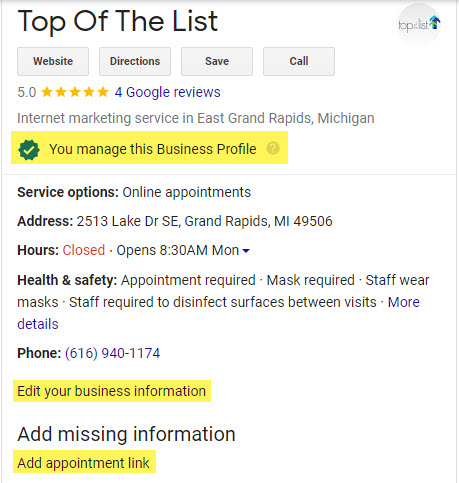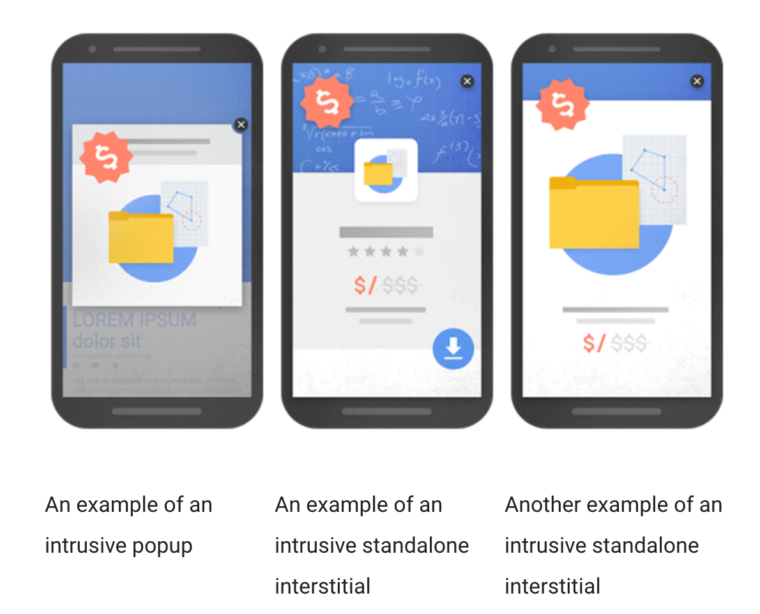November 2021 Newsletter
In This Issue:
SEO – It’s (Still) All About Content

SEO strategies have changed over the years, but it’s clear that content is still king. Search engines want to show users the best websites available and visitors want a high-quality experience. Here are some actionable ways to improve your website’s content, help your SEO, and make customers excited to visit your website.
Google Changes ‘Google My Business’ to ‘Google Business Profile’

Local SEO cornerstone Google My Business will now be called Google Business Profile, says the company. In addition to the different name, they are making other changes to how Google Business Profile works. The Google My Business app will eventually stop being supported as Google is encouraging all users to manage their profiles directly in Google Search or Google Maps.
Single location businesses will have a link directly on the Google Search page (when the user is logged in) that will allow them to manage their Business Profile:

Businesses with multiple locations or agencies that manage other businesses can still use the Google My Business interface, but it will be called Business Profile Manager.
Google is also adding a few new features:
- Businesses can keep track of phone calls made to their business from Google Search and Maps with Call History (US and Canada only)
- Businesses can read and reply to messages within their Business Profile using a chat feature (US and Canada only)
- Google Ads users can plan local campaign budgets using Performance Planner, a tool that allows forecasting campaigns and adjusting ad spend easily.
For more information about these Google Local updates, see Search Engine Land’s comprehensive article.
Tip of the Month

Remove pop-ups on mobile, or at least be mindful of them. In theory, pop-ups sound like a great way to get your website visitor’s attention. In practice, they can cause a lot more problems than they’re worth, especially on mobile.
Google’s main goal with SEO recommendations is to create a great user experience. We all know the difference between a good website and a bad one from our own experiences. Pop-ups and interstitials often impact these experiences because they often:
- Interrupt the natural flow of web browsing
- Are hard to close
- Take up too much room on the screen
- Distract visitors from the website’s main content
- Cause pages to load more slowly
- Are generally annoying
In addition to these obvious effects, Google also discourages websites from using intrusive pop-ups and interstitials. They even credit it as a direct ranking factor, which they do not do very often. Search engines do understand that sometimes pop-ups are necessary for things like age verification and accepting cookie policies, so they have not written off pop-ups altogether.
There are ways to use pop-ups responsibly, but it is important to keep in mind that ranking can always be affected by them. If you must use interstitials, here are some ways to use pop-ups responsibly:
- Do not allow pop-ups to cover the entire screen. Users should not have to close a pop-up before they can access the content on the website.
- Pop-ups should not interrupt users as they navigate between pages.
- Avoid new window pop-ups that open as the user clicks on the page.
- Make sure pop-ups do not appear in places where the user may accidentally click on them.
- Use timed pop-ups instead of immediate ones.
- Set pop-ups to appear once per visit instead of on each page, unless absolutely necessary.
- Do not play sounds in association with pop-ups.
- Use exit-intent pop-ups that display as the user leaves the site.
If it’s still unclear what are considered intrusive pop-ups, here are some examples:

And here is an example of an acceptable pop-up:

A great way to decide whether or not you should keep a pop-up on your site is to browse it yourself. Can the pop-up be removed? Is it impacting your overall experience? The effects of pop-ups on SEO are much stronger on mobile so when in doubt, only use them on desktop and remove them from mobile. If you have any questions about when to use pop-ups, contact Top Of The List for help!
Just for Laughs
A man takes his sick Chihuahua to the veterinarian. They’re immediately taken back to a room.
Soon, a Labrador walks in, sniffs the Chihuahua for 10 minutes, and leaves. Then a cat comes in, stares at the Chihuahua for 10 minutes, and leaves. Finally, the doctor

comes in, prescribes some medicine, and hands the man a $250 bill.
“This must be a mistake,” the man says. “I’ve been here only 20 minutes!”
“No mistake,” the doctor says. “It’s $100 for the lab test, $100 for the cat scan, and $50 for the medicine.”
Our best for your success!





